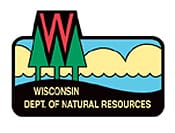Wisconsin DNR Proposes Purchase Of Hall Farm To Prevent Spread Of Chronic Wasting Disease
Proposal includes prohibiting nature based outdoor activities on the property.

MADISON, WI –-(Ammoland.com)- The Department of Natural Resources will request permission from the Natural Resources Board to purchase a CWD-infected Portage County farm known as the Hall Farm to protect wild deer in the area from chronic wasting disease.
The board meets March 23 in Madison. Citizens interested in testifying before the board on this matter must register with the Natural Resources Board Liaison, Laurie Ross, (608) 267-7420 Laurie.Ross@wisconsin.gov by 4:00 p.m. Friday Mar. 18.
Stan Hall operated but was not the owner of the farm. He operated the property as a whitetail deer farm until 2006 at which time it was closed down due to an outbreak of chronic wasting disease (CWD). Chronic wasting disease was first found in a deer harvested from the farm in 2002. Discovery of additional CWD positive deer followed. In 2006, the U.S. Department of Agriculture depopulated the farm’s deer herd in an agreement reached with the owner. At the time of depopulation, 60 of 76 animals euthanized tested positive for the fatal disease. In all, 80 CWD-positive animals were removed from the farm.
“To our knowledge this was the most heavily infected herd found anywhere in North America with 80% of the animals infected,” said Kurt Thiede, land administrator for DNR. “Science tells us CWD prions can survive for years in the soil and that healthy deer can become infected by contacting those prions. We believe that there is an unacceptable potential risk of wild deer being exposed to CWD-causing prions should the current fencing be damaged or removed. Purchasing this property is the best assurance we can give that deer-proof fences are maintained and the wild herd protected.”
The department’s recently adopted Chronic Wasting Disease Response Plan 2010-2025 sets a goal to “minimize the area of Wisconsin where CWD occurs and the number of infected deer in the state.”
Since 2002, 1,200 Portage County wild deer have been tested for CWD with no positives.
With the current management agreement between the owner and the USDA due to expire in May 2011, DNR wildlife officials feel the only way the public can be assured the fences will be maintained is by purchasing the property. Stewardship funds will be used to purchase the property from Patricia Casey for $465,000. The department intends to allow access to the property for research purposes only.
Nature based outdoor activities including hunting, fishing, trapping, cross country skiing and hiking would be prohibited as part of the purchase approval. The primary purpose for this purchase is to create a permanent enclosure so that no wild deer may enter the property by any means and to ensure that no soil or sediments are removed from the property and transported to other locations unless authorized by the department, according to DNR officials. Additionally, DNR hopes to use the property to conduct research.
The department has determined that it is necessary to prohibit all public access to this site to accommodate the primary purpose. The authority to use this property as a place to conduct research and wildlife management is granted to the Department generally in s. 23.09 (2) Stats., and more specifically in s. 23.09 (2) (d) (15) and s. 23.09 (2) (k) Stats.
Full details on this action are available online at the DNR webpage, dnr.wi.gov. Select Natural Resources Board followed by Meeting Agendas and Materials
Written comments regarding this proposal and requests for additional information may be submitted to the attention of Richard Steffes, Bureau of Facilities and Lands, Wisconsin Department of Natural Resources, 101 South Webster Street, Madison, WI 53707-7921. Ph (608) 266-0201. Comments will be received through March 30, 2011.
“Wisconsin’s whitetailed deer herd is one of our state’s most valuable natural resources providing recreational and economic value and is a foundation of family traditions,” said Thiede. “Sportsmen and women rely on us to protect the wild herd. We feel this action is necessary to do that.”
